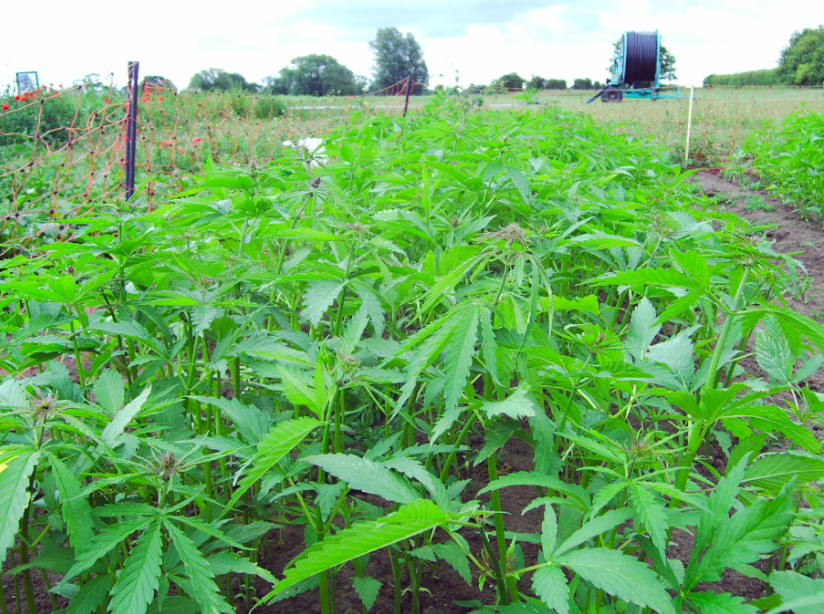Using fast-track molecular plant breeding, the scientists selected hemp plants lacking the active form of an enzyme involved in making polyunsaturated fatty acids. These plants made less poly-unsaturated fatty acids and instead accumulated higher levels of the mono-unsaturated oleic acid. The research team used conventional plant breeding techniques to develop the plants into a “High Oleic Hemp” line and higher oleic acid content was demonstrated in a Yorkshire field trial.
Oil from the new line was almost 80 per cent oleic acid, compared with typical values of less than 10 per cent in the standard hemp line. This high mono-unsaturated/low poly-unsaturated fatty acid profile increases the oil’s thermal stability and oil from the new line was shown to have around five times the stability of standard hemp oil. This not only makes the oil more valuable as a cooking oil but also increases its usefulness for high temperature industrial processes.

Yorkshire Field trial of High Oleic Hemp. Credit: University of York
As oilseed rape faces declining yields and increasing attacks from pest and disease, UK farming needs another break crop to ensure the sustainability of its agriculture and maintain cereal yields. An improved hemp crop, yielding high quality oil would provide an excellent alternative. Hemp is a low-input crop and is also dual-purpose, with the straw being used as a fiber (for bedding, composites and textiles), for biomass and as a source of high value waxes and secondary metabolites.
Professor Ian Graham, from the Centre for Novel Agricultural Products (CNAP) at the University of York said, “The new line represents a major improvement in hemp as an oil crop. Similar developments in soybean and oilseed rape have opened up new markets for these crops, due to the perceived healthiness and increased stability of their oil.”
In 2014 field trials of the new High Oleic Hemp are being rolled out across Europe in order to establish agronomic performance and yield under a range of environmental conditions in advance of launching a commercial crop.
Citation: Monika Beileka et al., 'Targeted mutation of delta 12 and delta 15 desaturase genes in hemp produce major alterations in seed fatty acid composition including a high oleic hemp', Plant Biotechnology Journal 10 February 2014 http://onlinelibrary.wiley.com/journal/10.1111/(ISSN)1467-7652/earlyview






Comments